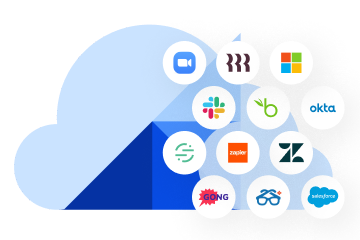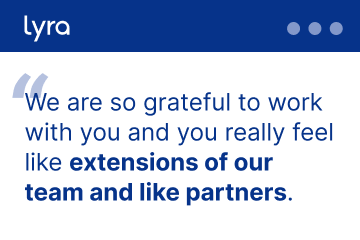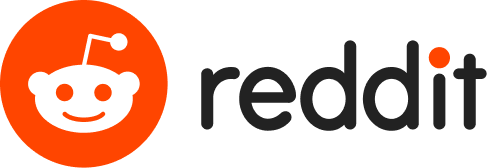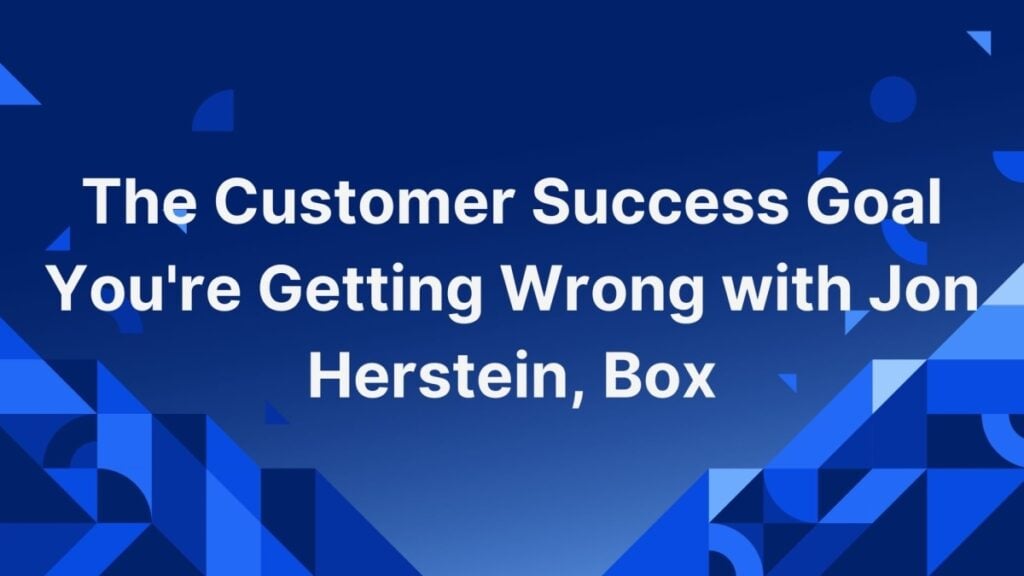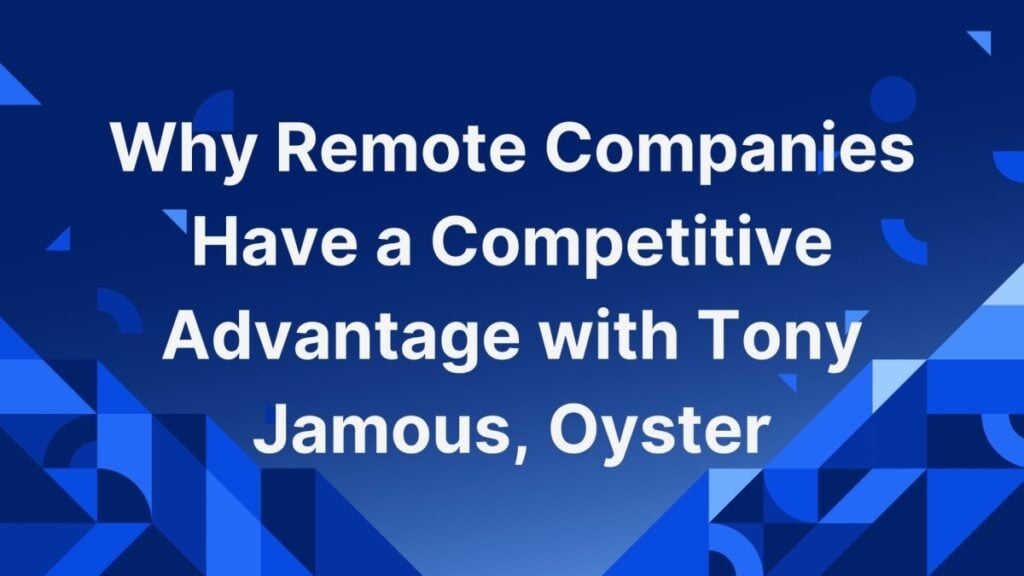-
 Resource Center
Resource Center
Discover enablement best practices and more in our resource center.
-
 Blog
Blog
Read the latest on enablement, learning and training trends.
-
 Podcast
Podcast
LEARN from the top leaders in SaaS.
-
 Videos
Videos
Watch videos and gain actionable insights from leading experts.
Tying Culture to Strategy
with Melissa Daimler, Chief Learning Officer at Udemy
Culture and strategy aren’t two ends of a spectrum. In fact, culture should be embedded into your strategy.
“I believe that culture is the ‘how.’ If you think about your vision or your mission, that's your ‘why,’ it's why you exist in the world, why you get up in the morning, why people are doing what they're doing. Then there's the strategy. That's the ‘what.’ What are you focused on? What is expected of people to get the outcomes and the results that we want? And then the culture is the ‘how.’ How are we doing this? How are we working together?” explains Melissa Daimler, Chief Learning Officer at Udemy.
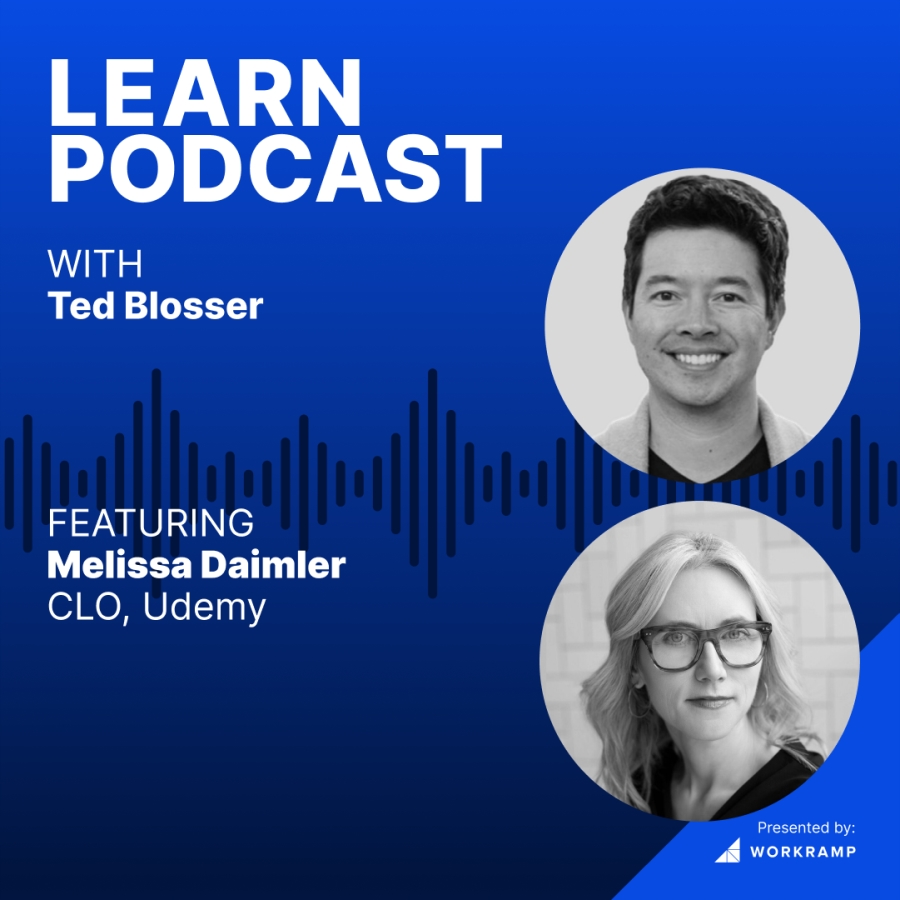
In the latest episode of LEARN, Melissa joins Ted, WorkRamp’s CEO & Co-Founder, to discuss the value of developing culture as a part of your business strategies for growth. Additionally, they also talk about the important distinction between skills and behavior and why you should be considering how they affect your company from a systems perspective.
Key takeaways:
- Culture isn’t about ping-pong tables or happy hours; it’s about how you work.
- The link between behaviors and skills is something organizations aren’t fully taking advantage of.
- Being clear about the behaviors and skills you want your employees to develop is crucial for continuity and growth.
Tune in on your favorite podcast app to discover how you can be more strategic in developing culture and embed culture into your strategies.
Timestamps
[03:06] The new role of HR
[05:20] How HR leaders can start thinking like business owners
[07:45] The future of workplace culture
[11:40] Why Glass Door reviews might not be so insightful
[13:25] The future of career growth
[17:55] Screening for the right managers
[19:10] Developing leaders at Lattice
[23:22] LEARN Rapid-fire round
Resources
- Melissa Daimler
- Udemy
- Ted Blosser
- WorkRamp
- Book Recommendation
Transcript
Melissa Daimler: From a systems perspective, I believe that culture is the how, if you think about your vision or your mission, whatever you want to call it, or your charter, or your purpose, that's your why, you know, that's kind of your long-term play.
It's why you exist in the world. why you get up in the morning, why people are doing what they're doing. Then there's the strategy, you know, that's the, what, what are you focused on? what is expected of people to get the outcomes and the results that we want. And then the culture is the how.
How are we doing this? How are we working together?
Ted Blosser: Welcome to the LEARN podcast, where we interview top leaders in tech and learn about how they're building the world's most innovative companies. I'm Ted Blosser, CEO and Co-Founder of WorkRamp, the world's first learning cloud platform.
Our mission is to help professionals reach their full potential through learning, and the LEARN Podcast is where we can learn from the best leaders at the top of their game. Please subscribe, leave us a rating, and we hope you enjoy the episode.
Welcome back to the LEARN podcast. We have a special guest on today. Melissa Daimler from Udemy. She's the Chief Learning Officer there. And Melissa, excited to have you on the show today.
Melissa Daimler: I'm excited to be here. Thanks for having me.
Ted Blosser: Well, let's start off with your elevator pitch. Uh, tell us a little bit about your background.
Melissa Daimler: I've been in the industry for over 20 years now. think if I talk about my career, one of the themes is I'm a systems thinker. So, I've always, thought about problems and every one of my jobs within the context of a system.
Way back when I was at Adobe and was able to kind of start the organizational development, function there, and then later kind of restart the learning function. That was really the context that we had. So how do we not just, roll out more trainings or push our agenda onto the business, but.
You know, really take a step back and look at the total system and figure out, what problems are we trying to solve? How do we help the business and teams and individuals be more effective? So that was kind of the thread throughout my whole career. And of course, I've always been interested within that system.
Around culture, it really is how work happens, how work gets done. and when you can connect all the parts and really see the value of culture tied with strategy and purpose, That's just magic in an organization. And so I saw a lot of that magic happen, at Adobe was able to kind of take what I learned from the almost 11 years there into Twitter, and really kind of build the from the ground up, like, what the learning function was there for 4 or 5 years. Was there for the IPO and just, it was a great time, for Twitter, just a lot of growth, internally across the teams. we scaled across the globe as well. and then I had, what I can say now, is an opportunity to see WeWork. So made it a year, tried my best, failed.
It was such a great lesson for me to kind of understand again, the importance of time, strategy with culture. And it was really what. Lit my fire to write this book and to make sure people understood the importance of culture with strategy.
Melissa Daimler: And then after some consulting time with companies around culture had the opportunity, Udemy came calling and said, Hey, We're looking at, bringing in somebody to help us again, think about that whole system and where learning fits into that. So can you come talk about your book, really help us, but also help our customers think about learning again, in the context of that greater organizational culture context. So I've been at Udemy now for a couple of years and I love it. And you and I were just talking about the fact that we don't just get to, develop our employees internally, but I also get to talk to a lot of customers and really be a thought leader for them around building great learning organizations and great cultures.
Ted Blosser: Yeah. Saying that's such a great superpower of Udemy to have someone like yourself, be able to provide that thought leadership, to customers, prospects. So it's great to have you in that,regard at Udemy. Question for you, actually, before we jump into the meat of it. talked about Twitter, he talked about WeWork who have very, influential CEO slash founders.
Did you learn anything about the intersection of strong-willed or influential founders and culture? it's probably a tough question to answer, but I'm curious if you learned anything from those two experiences.
Melissa Daimler: I do think good founders, I mean, I, credit Jack a lot here. Jack Dorsey with Twitter. think the good ones are able to let go of how it was, and even kind of bring forward all the goodness that is working. that's one of the things that so many founders, get concerned about, like, how do we bring.
The magic and the culture along this growth path,and let go of some of the things that we know don't work. And so that's one of the things that I talk about in the book is think you can still, have your core culture and the essence of that, but maybe how it's expressed is different.
I'll give you an example. That's one of the many, ways that we work went wrong. think one of the core practices that they did was bring together people, the entire company, they have these gatherings. It was called summer camp. And I think when it was 20 people in a backyard with a barbecue and a volleyball net, that was great.
But when it's 5, 000 people over the course of three days, and you're putting people in teepees that don't know each other, That's a little scary. if one of the values is connection or teamwork or gathering, how do we express that in perhaps a different way, than through that particular practice?
So, again, I think you can have consistent values and. bring the essence of what's working in a company along, but you have to be willing to let go of some things. And I think every good founder that I've worked with is able to toggle both of those.
Ted Blosser: That's a great learning could imagine being on the HR team during summer camp, they're probably freaking out. saw that on the, I think the documentary I was thinking that would not be a good spot.
Melissa Daimler: It's our nightmare.
Ted Blosser: So, okay, let's jump into. The first big topic, which is culture or re culturing in your words behind you.
You have a few of those books as well for the audience. Melissa published a bestselling book around culture. Can you give us the core tenants of re culturing how it may be maps back to your systems experience you were just talking about, and that might ask a follow up here from those core tenants,
Melissa Daimler: Think one of the reasons I wrote it, as I said, is because I, felt like. In 2016, when I left, we work, I couldn't believe that I was witnessing some of what I was seeing. and I, again, tried to influence as much as I could. And we made some changes there, but the system had so much momentum at the time, with some of the leaders there was hard. And so I think. one of the reasons I wrote this book is because I felt it was important to write about culture from a practitioner's perspective. So from an operating viewpoint, because so many of the other books on culture and everything I read, the research articles and the papers and other books were written by people who frankly had never stepped into an organization.
There were so many other ones and they would talk about it in theory and they would talk about how culture is this, belief or mindset or, it's all about creating fun and happiness in an organization. And I just felt like we did a disservice to.
HR and to people leaders in general on the power of what culture is and can be in an organization. And I also just frankly, got, not only frustrated, but it was just confusing. I mean, just a lot of frameworks and models that just weren't useful and practical. So I wanted to write something that was useful that it was essentially a playbook for anybody to take an employee or a leader into their organization and be able to.
Take action on it right away. I think from a systems perspective, I believe that culture is the how, if you think about your vision or your mission, whatever you want to call it, or your charter, or your purpose, that's your why, you know, that's kind of your. long term play.
It's why you exist in the world. why you get up in the morning, why people are doing what they're doing. Then there's the strategy, you know, that's the, what, what are you focused on? what is expected of people to get the outcomes and the results that we want. And then the culture is the how.
How are we doing this? How are we working together? we've probably both experienced. A lot of people experience those, colleagues or employees on your team who kick butt on the results. They just nail it, but they're the worst team player, or they're condescending or they're not bringing people along.
And so that how is so important. So I think it's really important to connect all of those pieces and, so often I feel like Leaders are either focused too much on the strategy, or, there are leaders who focus too much on the how, a lot of HR leaders, in my experience, do that, you know, they're not as much focused on the results and that's not great either.
Think that connection between all of those parts creates a much stronger. opportunity for the company to be successful. And then within culture, it's behaviors, processes, practices.
That's how I talk about culture. So going beyond values and really thinking through and being explicit about what are those behaviors that you want to show up in your organization that would exemplify. Your values. So I always give the example of innovation is a great value. A lot of companies have it, but your company might mean something very different than innovation at my company your company.
It might mean we want to go faster. We want to get V1 out there. We want to prototype. I may say, you know what, we're going too fast. We're spending way too much money. We have a lot of bad ideas, that are getting through. I want to slow it down. want to actually, ask more questions. So behavior that I might have for innovation could be, we ask more questions.
And I actually worked with a company Who did that? And so they would ask more questions and they would ask why specifically in meetings. And that was a signal for, okay, hold on, we got to slow this down because we don't want to go where we went before. So I just think behaviorally, you need to really identify, no more than, 10 to 12 behaviors across an organization that you want to reinforce through.
And that's the second piece processes, how you hire, how you onboard, how you Reward how you give coaching and feedback performance management. So if those behaviors are then embedded into behavioral questions and then in how you promote. And how you, reward people that is such a, great kind of forcing function to ensure that you're living your culture.
And then the practice piece is more of this day to day stuff. So how you meet, how you connect, how you communicate, there's such an opportunity to kind of reinforce, your behaviors in things that you do there. We have at Udemy, no surprise, one of our values is always learning, but one of our behaviors we realized was we engage in constructive debate because we, realize that that's where we learn is when we push back on each other.
And we share an opposing viewpoint. And so, I try as much as possible in meetings when we're. Talking with 1 another, for various projects, to kind of give an opposing viewpoint. If nobody else does, like, I just want to test this we kind of create what we call productive friction, to make sure that we're thinking about this in a very holistic way and that we're learning before we make any mistakes.
Ideally. Like, what could be another way to think about this earlier on in the process? that's kind of how I think about culture.
Ted Blosser: Let me ask you this. So if I got the dates correctly, I saw you published The book in mid 2022, I'm assuming you came up with a lot of the frameworks pen to paper in 2021.
And if you think about that, you were writing a lot of this, but I'm sure you had the thoughts in an era where there was high growth.
It was the zero interest rate policy era. So the world was. different when you were writing this and when you published it, the world changed also dramatically. So if you had to, let's say, write an addendum to reculturing today and how you've seen the world change in 2023 and the back half of 2022, when you think about behavior process practice, does it change any parts of that framework one of those, for example, just lived differently now in this new environment?
Melissa Daimler: Yeah.
What's so interesting is that I think the hybrid model that we live in now with. The workplace reinforces what I'm saying about culture even more becauseI always said that it's not about happy hours. It's not about the ping-pong tables. It's not about what's at an office. It's agnostic of any office because it is how we work with each other.
And I think the silver lining to, the pandemic was, oh, wow, we can. Design and build and more intentionally create culture every day because it is an active. I always say it's a, practice. it is a verb, not a noun. It's something we do, and we can do that virtually, wherever we are.
So I feel like it reinforced that you know, am thinking about another book. is more around, how do you move from. I have a chapter in the book about this, I'd like to talk about it more, behaviors to skills because so many of the organizations are talking about skills based organization now.
And at Twitter, we started doing this. We called it org skills at the time, but, these are the behaviors. If constructive debate is an example is one of our behaviors. One of the things that we're building at Udemy as a skill is how do you debate? what is a good debater?
Like, how do I ask good questions? How do I listen? How do I share with you a point of view? and respectfully counter another one. and so I think the link between behaviors and skills is something that a lot of organizations aren't fully taking advantage of.
Ted Blosser: When you were talking about behaviors, the first thing I was thinking about was Ray Dalio's book, which is his principal's book,
And one thing I realized is those are essentially behaviors your definition of it.
But then I was thinking about Ray Dalio as an individual and, with Bridgewater was, he could never get a replacement. He could never find a good successor. it clicked with me as like, maybe it's because. He's not focusing on the skills and the developing of people. He's kind of focusing too much on the behaviors and maybe that is a reason why organizations fail and succession plans or like driving the right behaviors because you don't have the right skills.
I do think that we are trying to shift from, what is the job? What is the role to what is the work? what is the work we're trying to get done? And then, we look at it in that context, there are, probably 3 to 5 skills that Need like in this example, are the skills that had Ray be so successful you gotta get more specific than leadership, was it asking good questions?
Melissa Daimler: Was it being. a clear communicator, so, I think there's a strong link there that you can. Even tie to your learning strategy that reinforces. culture.
Ted Blosser: Everyone we're on the podcast right now with Melissa Daimler, the CLO at Udemy. And we're talking about skills based organizations and also how to improve culture at your company. If you're looking at building a skills based organization, look no further to WorkRamp. WorkRamp is the all in one learning cloud, which can help instill the critical skills you need in your workforce.
If you want to learn more about the learning cloud, visit us at WorkRamp. com. Back to the episode.
In my research, I saw you just presented on skills at, the Udemy conference, and I love to understand your viewpoint on you have the acronym of SBO skills based organizations. give us kind of the more in depth philosophy on skills based organizations heading into next year, what are you evangelizing out to your customer base or potential future customers?
Melissa Daimler: I think a lot of companies are, trying to figure out what this is. and I think, some people have said, well, gosh, it's what we've been trying to figure out for years. you're just applying the word skills on it. Cause way back when, I've been doing this for a while, we used to talk about competencies and, How we're thinking about this hasn't totally changed, but I think the word skill the fact that we're getting much more precise about what we expect and want from employees is allowing us to build much more,specific and precise systems around it.
Also, what's different than when we first started grappling with is our tech stacks. So, the opportunity leverage, different, systems to embed skills and to make sure that they connect with other technology across the organization. I mean, There are so many companies now kind of helping with internal mobility as an example, how do we again, not just think about internal mobility as moving from 1 job to another.
But what about projects? What about gigs? What about initiatives that are maybe just 3 months or 6 months long? Could I have somebody kind of, Work on that project and leverage 80 percent of the skills we need, even though I know 20 percent of those skills aren't there, but they can develop those.
So it's a twofer because I'm getting my project done. And I know they get to develop as an employee, too. So we talk about 4 things 1 tied to the strategy. So how everything we're doing right now at a strategic level is around. Thinking about our skills and our people processes.
So again, going back to hiring onboarding performance managing, can we pull out the specific behaviors and skills that are needed across all of Those processes. when we look at our career leveling framework from, I see to VP. and the criteria for what it takes to be a successful leader here.
What are the skills needed across each of those levels? and I think from a technology stack, do we have a technology strategy that is fully integrated with our skills strategy? and then we're also just looking at,know, the personas or employee segments. So what do we expect of every people manager here in terms of skills?
Is that different or the same as a leader? what do we expect from,a leader in. Engineering, there is there another layer of technical skills on that? So, how do you kind of, make sure that employees are super clear about the behaviors and skills that they're expected to have and do and then how do we then figure out ways if there is a gap to develop those skill sets.
Ted Blosser: You were talking about how people have kind of swung in two directions. Some are just so performance driven and some are too culture driven.
And it sounds like It needs to be a nice balance of the two. where do you think skills comes into play in terms of driving performance? So I'll give a simple example,when we talk to clients, you have to kind of convince them like, Hey, you need to learn to improve.
And a lot of times I say, I'm too busy to learn. I just need to go close that next deal. Right? where's the importance of skills come into play as it relates to driving? Performance in an organization,
Melissa Daimler: That is exactly full circle back to why I think it's important to look at your organization as a system. if you are bringing up learning opportunities or trainings or doing this workshop that's separate from skills, I know I need to either. Execute on in my job today, or I know I need to develop in order to be promoted.
I'm not going to bother. But if you tell me that these are the skills that are really important for your job today. Here's where I think you're doing well. And here's where I think you develop and here are some learning opportunities and experiences that. I want you to be part of that are directly going to help you be more successful in your job today.
Thank you. And I'm going to help you get that promotion. You bet. I'm going to make time for that. That is then a context for me. that is part of my job and my work. the context is no longer what you just said, which is it's on top of my day job. Like, I don't have time for that because it's an extra thing I need to do versus I think our job as learning leaders, especially is to, integrate and connect Those learning opportunities with the skills people need to develop.
Ted Blosser: Do you have a rule of thumb, or have you seen really great companies who think about? Hey, how much time should I be spending on developing skills or learning? Whether that is Express in a percentage, like, Hey, if you're a working time, you should be spending 5 percent just developing or in a cadence that you've seen work really well for top performing do you ever give recommendations like that to other, people leaders or even, CXOs?
Melissa Daimler: No, because I think everybody's different and I think learning shows up in so many different ways. Now, like, it's like putting the broccoli in between the. The brownie. Like, you and I both listen to podcasts like this. I'm learning so much.
Like, some of them admittedly are on two X, but there's some where I slow it down or I rewind because there's fun stuff too, but like so many podcasts, audible, um, YouTube, we're always learning there. you know, read as much as I can.
I always say, behind every good writer is a good reader, youI learn best and we know this and there's a ton of studies on this, which is 1 of the reasons why we have a whole cohort model that we're really driving toward it at Udemy is you learn so much from your peers.
So, even if both of us watch the same thing, or we're part of the same learning opportunity and experience, you will get something different than I will get. And then when we practice what we learn, we'll have a different experience that we can then bring back and share with each other. And I will learn even more because you executed on it and practiced it with an employee in a little different context than I did.
And so 1 of the things I always talk about, and with my own team, I think that our weekly team meetings, we learn. Every week we say like, what did we learn this week? Or we're all going through every quarter. We pick a different topic. It was a I
But, we had, learning past that we all went through and were responsible to get through. But then every week we looked forward to that conversation. Hey, what prompts did you use this week? how did you word that? Or, how did we actually created an assessment together?
We saved 15, 000 and did it in 3 days versus, 3 months, through chat GPT. And so we're now this quarter, it's on skills based orgs. We have a whole list of things that we're learning, but then. When we talk about it and think about how we can apply it, that, to me, is where the richness and value of learning comes into play.
Like, are we taking what we just learned and applying it in our day to day work?
Ted Blosser: I heard a quote on the, Dr. Huberman podcast of Strummer's law, no input, no output. and, if you're not learning, you're not going to be able to be creative and have good output. And I went through my calendar for the week and I said, Hey, roughly how many meetings are input meetings where I'm learning, just like you were.
just talking about your learning in these meetings. And then how many meetings are output meetings in my workday? And it was about a third was only input and a two thirds output. I wonder if it's different for not CEOs, but it was interesting to take stock of your calendar and
just be like, all right, how much of the time am I actually learning?
I'm sure you, you're doing a lot of output. Like as people look to learn from you.
I wonder if you personally struggled, like, all right, who else is at the top of the mountain above me that I can learn from?
Melissa Daimler: I'm such a big fan of, working in your day-to-day, but then working on it. I really do try to not jam my days with back-to-back meetings. So that especially now,I learn, so much about my team and what's going on in the organization just by, making sure I take moments in between meetings walk around and have a little bit of, breathing space between, we can't learn and take more information in if we don't allow for that space, for it to happen and,
Ted Blosser: All right, Melissa, let's close out with our learn rapid-fire round. This is where I'll ask you just a few questions. I'd love to get one or two line answers for each. First one I'm going to ask you is what's the hardest thing you learn from writing a top-selling book that you didn't expect?
Melissa Daimler: To make writing be a practice every day. So I actually just... From five to eight every morning. I shifted my workout to later in the day.
And I would just sit and there were days where not a lot came out, but just the practice of being there and knowing that that was a forcing function. I learned that you have to have a habit of writing if you're going to get that book done.
Ted Blosser: It's a huge time commitment. All right. Next one. One tip. And we talked a little about this earlier for making space for learning. In your day to day.
Melissa Daimler: I think first just being clear about what it is you want to learn. So we share with my team, like, what is a skill that we all are trying to develop and then what support do we need from each other? So I think 1st, being clear about what it is you're trying to learn. And then, we did talk about that, you know, making space for you to learn that
Ted Blosser: Last question. You've had an amazing career and you have so much left to go as well. But what is one tip you would give to aspiring L and D leaders, who want to get to the top of the, let's call it the learning mountain, what would be your one tip?
Melissa Daimler: My 1 tip and I wrote about in the book, is a tip that Donna Morris gave to me years ago is that no matter. Yeah. what function you're leading. You were always a business leader first. So be really clear about the business that you're in, the way you make revenue, all of the issues that the company is, trying to, address and make sure that you're connected into that.
Ted Blosser: I love that. Actually, a lot of people don't think of the world that way. They think about their role first and then the business, maybe third. but I love the reverse psychology around that. Melissa, thanks so much. This was an awesome conversation. Really enjoyed it. And I appreciate you being on the LEARN podcast.
Melissa Daimler: Thank you. This was fun.
Ted Blosser: Thanks for listening to the LEARN Podcast. If you're a fan of the podcast, Do us two favors. One is subscribe to it so you can get the latest updates our most recent episodes.
And two, write a short review of the podcast. This helps us get discovered in the broader podcast community. Thanks again.

_Nav.png?width=360&height=240&name=Employee_LC)_Nav.png)
_Nav.png?width=360&height=240&name=Customer_LC)_Nav.png)
